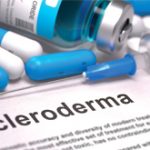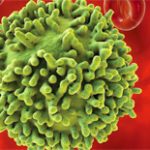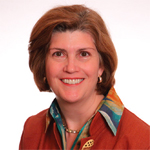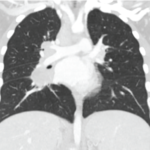Updated projections suggest that arthritis and arthritis-attributable activity limitation will remain large and growing problems for clinical and public health systems, which must plan and create policies and resources to address these future needs. By 2040, the number of U.S. adults with doctor-diagnosed arthritis is projected to increase 49% to 78.4 million. Can the healthcare system accommodate these projected increases? Not without changes. By 2025, the expected demand for rheumatologists is expected to exceed supply by 2,576 adult and 33 pediatric rheumatologists…
The ACR/CHEST ILD Guidelines in Practice, a video
In collaboration with the American College of Chest Physicians, the ACR released two new comprehensive guidelines aimed at improving the screening, monitoring, and treatment of patients with interstitial lung disease (ILD) secondary to systemic autoimmune rheumatic diseases (SARDs). Recently, Sindhu R. Johnson, MD, PhD, professor of medicine at the University of Toronto, Canada, director of the Toronto Scleroderma Program and principal investigator for the guideline, and Elana J. Bernstein, MD, MSc, Florence Irving associate professor of medicine in the Division of Rheumatology at Columbia University, New York City, and co-first author, presented a webinar to talk about how the guidelines were developed and present some of the recommendations and their rationale: Watch the recording now!

From the Expert: Tips for Research Grant Applications & NIH Funding
For researchers, obtaining a highly sought after NIH grant may seem impossible. But Martin Kriegel, MD, PhD, says collaboration and persistence can help. Here are a few tips to help your next grant application pass muster…
California Insurance Commissioner Urges U.S. to Block Anthem-Cigna Deal
(Reuters)—California’s insurance commissioner on Thursday urged the U.S. Department of Justice (DOJ) to block health insurer Anthem Inc.’s acquisition of Cigna Corp., saying he is concerned it will raise premiums in the state. Dave Jones, who as insurance commissioner in California does not have authority to approve the deal, says he believes his recommendation will…

Diagnostic Tests, Tips for Gluten-Induced Celiac Disease
CHICAGO—Celiac disease—the gluten-induced illness that can be seen alongside rheumatic diseases—has been seen much more commonly over the past 20 years than it was previously, but the illness can come with questions that are not always straightforward, an expert said at the ACR’s State-of-the-Art Clinical Symposium. The disease, in which the small intestine becomes inflamed…

Treatments for Scleroderma with Gastrointestinal Involvement Address Symptoms
CHICAGO—Nine out of 10 scleroderma cases include clinical signs of gastrointestinal (GI) involvement, with severe involvement associated with high mortality rates, but the pathology of this is not very well understood, a GI expert said at the ACR’s State-of-the-Art Clinical Symposium. That has left clinicians with a slate of treatments—anti-reflux, antimicrobials and prokinetics—that address only…

University of Alabama at Birmingham’s Division of Clinical Immunology & Rheumatology Recognized for Excellence
An interdisciplinary and collaborative environment is a critical factor for the advancement of basic science and clinical research in the academic environment, says William J. Koopman, MD, former director of the University of Alabama at Birmingham’s (UAB’s) Division of Clinical Immunology and Rheumatology. And in 1977, when he was being recruited by Division Director J….

Protein Phosphatase 2A and Regulatory T Cell Function Researched
The serine-threonine protein phosphatase 2A (PP2A) enzyme is critical for regulatory T cells to function—without it, they don’t have the ability to suppress effector T cells and can’t protect against autoimmunity, according to new research published in Nature Immunology. Researchers found that conditional knockout mice—in which PP2A expression is knocked out only in regulatory T cells—developed…

How Rheumatologists Can Engage Congress Locally, Advance Rheumatology
With limited time to spend away from your practice, you can still have an impact on issues important to Advancing Rheumatology! Below are several ways to have your voice heard, without ever leaving town. Set Up a Local Meeting with Your Elected Officials Every member of Congress has at least one local office in the…

Rheumatology Research Foundation Ranked in Top 2% of Charities by Charity Navigator
The Rheumatology Research Foundation recently received its seventh consecutive four-star rating from Charity Navigator. This prestigious, highest rating possible is based on good governance, sound fiscal management and commitment to accountability and transparency. As the nonprofit sector continues to grow at an unprecedented pace, savvy donors are demanding more accountability, transparency and quantifiable results from…

The ACR’s Collaboration with International Rheumatology Associations Promotes Progress
More than 10 years ago, New York Times journalist Thomas Friedman opined an old-world perspective that the world is, in fact, flat. In an article published on April 3, 2005, Mr. Friedman contended that “Individuals must, and can, now ask: Where do I fit into the global competition and opportunities of the day, and how…
- « Previous Page
- 1
- …
- 184
- 185
- 186
- 187
- 188
- …
- 307
- Next Page »
